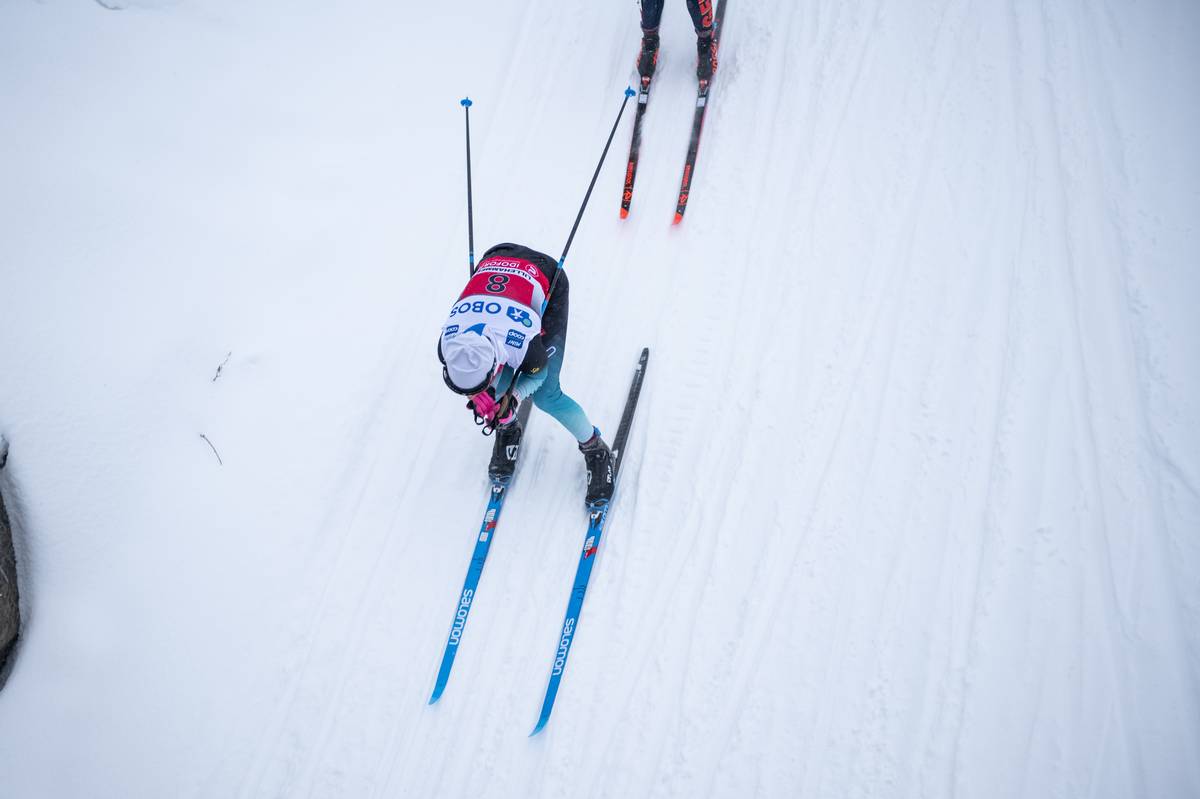
Pursuing my interest in the French women’s team further, I was put in contact with Thibaut Chene, the women’s coach for L’équipe de France. Before coaching the women’s national team, Chene worked with the French junior team for four years. Thus, many of the women now at the senior level have worked with him since they were junior skiers. In 2015, the prior women’s team coach, Anaël Huard, left and Chene took over. An article written at the time stated, “the French women’s cross-country ski team is shattered. They were five in group A a year ago; there are only two left.”
These two remaining women were Anouk Faivre-Picon and Coraline Thomas-Hugue and following that season, they were not renamed to the A-Team. After thirteen years of racing at the World Cup level, Thomas-Hugue retired in 2018. When the team for the 2019/2020 season was announced, Faivre-Picon was also absent from the list, choosing a different path to focus more on marathon racing. As such, the French women’s A-Team for the 2019/20 season had no athletes, while eight women were named to the B Team. Of those eight, Delphine Claudel, who was 24 at the time, was the most senior member. Half of the eight had yet to race a World Cup event when they were named to the team. Absent older and more experienced leadership, Chene and his group of relative newcomers forged ahead. After finishing the 2019/20 season ranked 32nd overall in the World Cup standings and 26th in distance, Claudel was the first woman named to the A-Team since 2015/16.
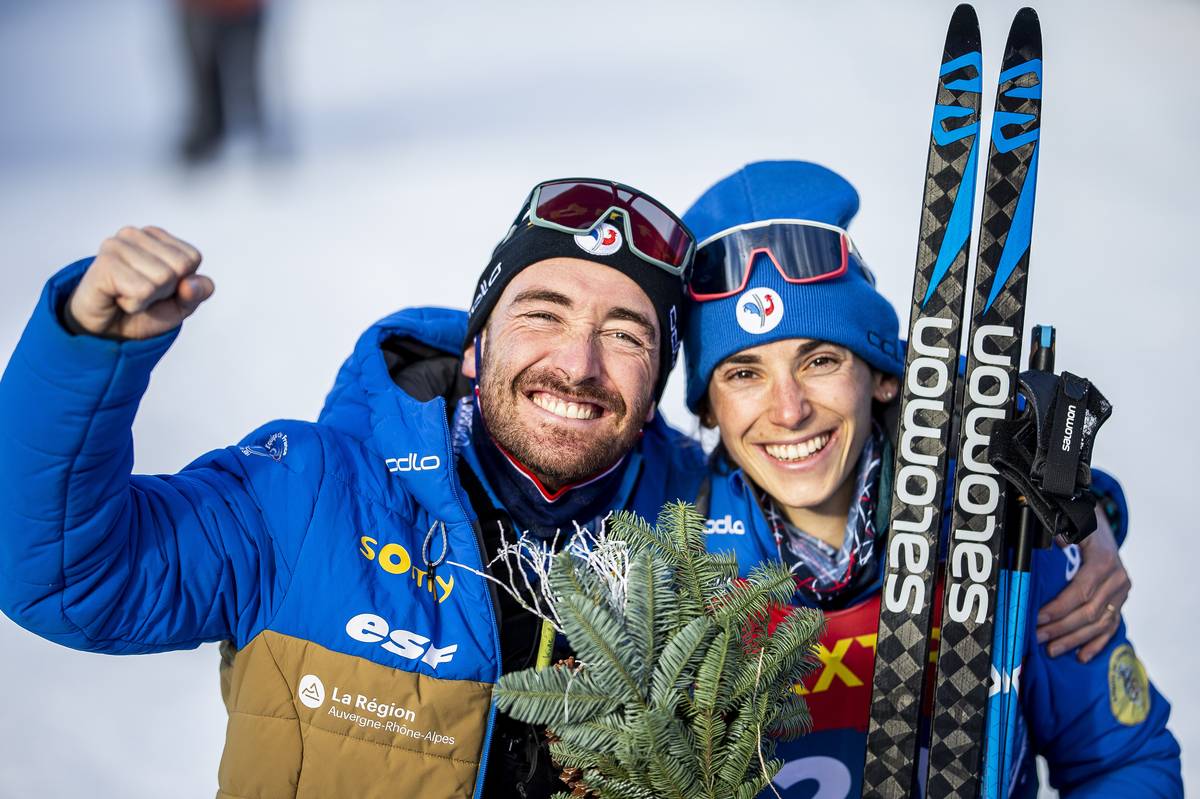
In his interview, Chene alluded to various reasons for this gap in the women’s team, ranging from systematic inequality in sport in France to the popularity of biathlon in Europe. However, with the recent success of Delphine Claudel and as his young athletes gain more experience on the World Cup circuit, Chene is hopeful about the future. The following interview was conducted in French and has been translated and edited slightly for clarity.
* * *
Faster Skier: While no nation is equally balanced in success and ability between their men’s and women’s teams, the depth of the French men’s team is unmatched on the women’s side. In your view, are there systemic reasons for this or would you attribute it simply to the cyclical nature of athletes and success?
Thibaut Chene: This observation is real. And in France, it is extremely true in all sports. For example, France is the only nation in the top 8 for Olympic medals at the Summer Olympics that does not have parity in its medals (around 20% of Olympic medalists are women). Women’s sport is therefore a sector which remains to be developed in order to increase the number of medals or successes. Personally, I think that this comes above all from the relationship to sports education for girls in France as a whole. In the approach to sport, in education, or in French culture, it is not natural to play sports for girls. In any case, it is not as natural as for boys (an OECD study showed that less than 30% of young French people under the age of 15 played sport outside of school, against 50% of boys. And many countries such as Norway, Sweden, or the USA exceed 50%. France is generally well below the OECD average) This is a finding, a fact that I regret and on which it is important to fight. The reasons for the imbalance in France are therefore systemic and multiple. However, it is up to us to change the situation and work to correct it.
FS: From the perspective of capturing a younger athlete, how difficult is it in France to attract, and retain young athletes… Does it differ for men vs. women?
TC: World-wide, cross-country skiing has had a rather declining image lately indeed. The competition with the biathlon is complicated because, in terms of audience, performances, or career opportunities, we suffer by comparison. And this is also a global phenomenon.
The hardest part is keeping athletes between the ages of 20 and 25 because they don’t all make a living from their sport and these are big sacrifices. And with the girls, quitting is often done before the age of 20. This relates to what I said previously about sports culture in France etc … Still, there is one thing to remember: We are having amazing times and we have a great life. We are lucky and cross-country skiing remains a traditional sport with a strong history. It is practiced in the heart of nature and allows you to exercise. We are able to accommodate many young people who want to exercise outside and surpass themselves.
Covid-19 has also enabled many people to see how interesting and stimulating outdoor sports are. It’s up to us to develop and promote our sport.

FS: Does France collaborate with other international programs at the junior level to increase the level of competition and exposure for their junior women?
TC: This is often done informally when we meet in the same places. We often shared joint sessions with the Italians, or Laurien Van Der Graaf (of Switzerland) in Davos for example in November. After that, we have no official collaboration with another country. Everyone also has their own program and plan of action and it is often difficult to coordinate. In the end, the current situation suits us quite well.
On the other hand, we collaborate a lot with our male teams. Gender diversity is a lever on which we have relied. Last year, we shared all of our preparation with the French distance and sprint teams. This is a very important axis and the men’s teams are helping us a lot.
FS: What/who are some international models you look towards for guidance?
TC: Norway or Sweden among the ladies are the undisputed leaders. So these are the best to watch to beat them. But I prefer to be inspired by a model more similar to France in terms of Nordic culture, let’s say much more restricted. In this sense, the success of the USA in terms of the women’s team or leader like Jessie Diggins is exemplary. This is the model we look at most, especially in the state of mind. It’s a team that makes you want to. Likewise, Slovenia is also a very strong team with Lampic. It is up to us to be inspired and also to invent our model.
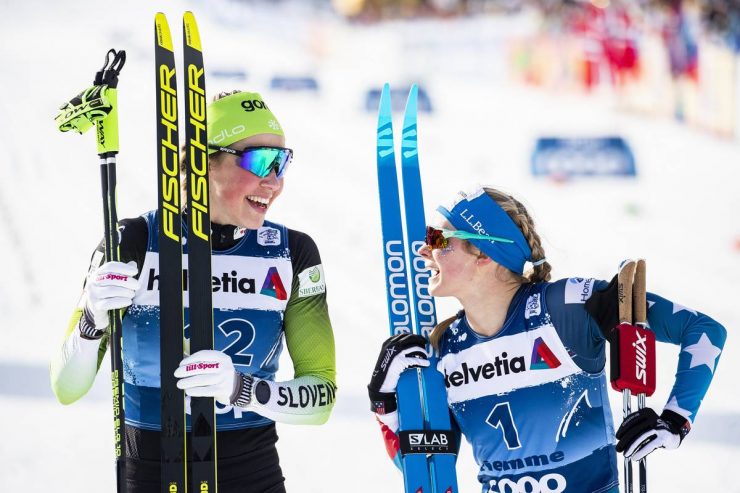
FS: In a previous interview, you talked about a “hole” in the French women’s team with Delphine Claudel being ten years younger than the previous generation, why is that and what is your approach for moving out of this “hole”?
TC: Yes, indeed. I had spoken of a generation gap to explain why it had taken us time and energy to rebuild a team when I arrived in 2015 in the U20 women team.
This hole happened for multiple reasons which added up. The strong success of biathlon in France meant that many young girls naturally turned to this sport, as did seniors with Célia Aymonier at the time, for example. Likewise, we may also have had a deficit in our support for the next generation during this period. This is why we made every effort to work in this sector and to support the girls who were taking over at that time, which included Delphine Claudel.
We are trying to continue the work in this direction.
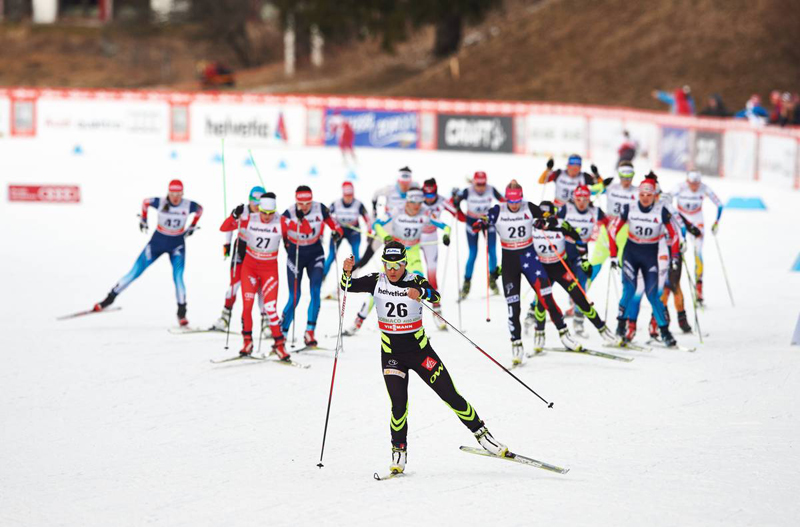
FS: This season Delphine Claudel had her first podium finish and top-ten World Cup results, do you think her performance will influence the rest of the team and/or the upcoming generation of female skiers?
TC: Yes I think so. She broke the glass ceiling of the result. She shows that it is possible for the whole young generation of cross-country skiers. Telling yourself that it is possible and seeing that it is, are two important dimensions to inspire other girls.
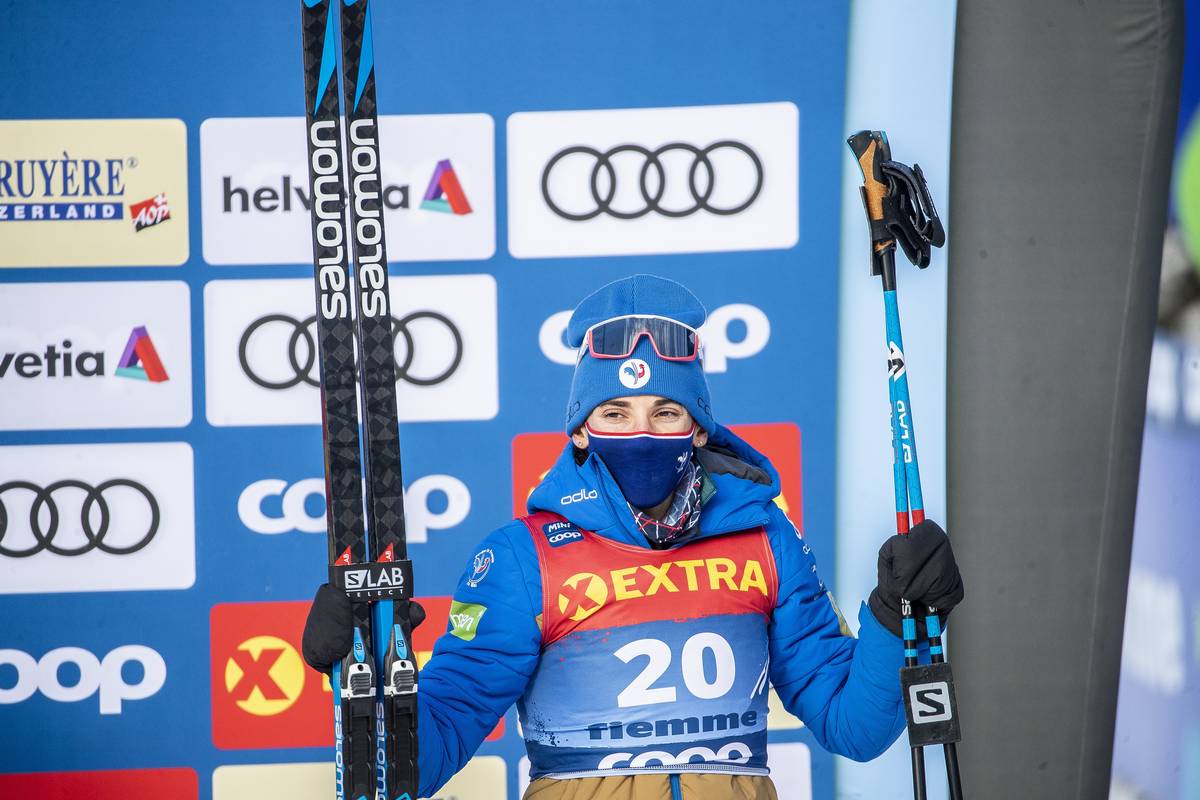
FS: What are your goals for this team and the women’s program in the next few years?
TC: Our objectives are diverse:
– Continue to play the leading roles in the world with Delphine and to progress against the backdrop of the Olympic Games of course.
– Support new girls emerging on the World Cup circuit with Léna Quintin in sprint or Flora Dolci in distance for example.
– Continue to train female skiers and allow the emergence of talent in women’s cross-country skiing.
– Participate in the influence of the French team as a whole: men and women, seniors and juniors.
Ella Hall
Growing up in Washington’s Methow Valley, Ella was immersed in skiing and the ski community from a young age. From early days bundled in the pulk, to learning to ski as soon as she could walk, to junior racing, a few seasons of collegiate racing, and then to coaching, she has experienced the ski world in many forms. Now, as a recent graduate from Dartmouth College, she finds herself living in France splitting her time between teaching English at a university in Lyon, avidly following ski racing (and now writing about it!) and adventuring in the outdoors as often as possible.



